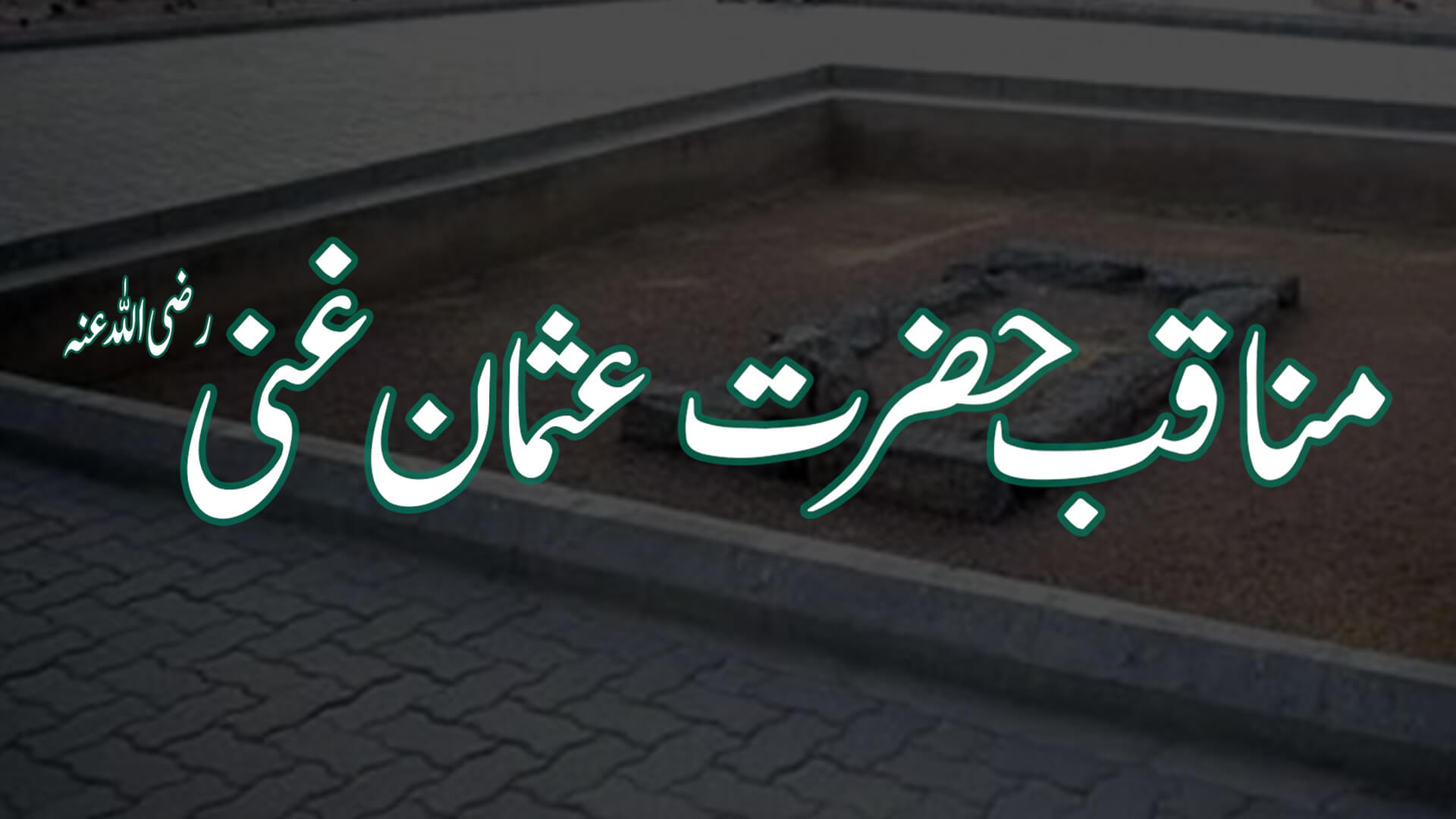Hazrat Usman Ghani (رضی اللہ عنہ)

Hazrat Usman ibn Affan (رضی اللہ عنہ), the third Caliph of Islam, is renowned for his generosity, wisdom, and contributions to the early Muslim community. His life and leadership have been honored in numerous Manqabats—poetic expressions that praise esteemed figures in Islam.
Who Was Hazrat Usman ibn Affan?
Born into the wealthy and respected Banu Umayyah clan of the Quraysh tribe in Mecca, Hazrat Usman (رضی اللہ عنہ) was among the earliest converts to Islam. He was twice married to the daughters of Prophet Muhammad (ﷺ), earning him the title "Dhul-Nurain" (The Possessor of Two Lights). His deep faith, humility, and immense generosity distinguished him among the Sahaba (Companions of the Prophet ﷺ).
The Legacy of Hazrat Usman in Manqabat and Islamic Poetry
Manqabat, a revered genre of Islamic poetry, extols the virtues of pious figures in Islam. Many Manqabats have been written in honor of Hazrat Usman Ghani (رضی اللہ عنہ), reflecting on his piety, contributions, and sacrifices. These poetic works often highlight:
- His Generosity and Charity: His financing of public welfare projects, including the famous purchase of the "Well of Rumah" for the Muslim community.
- His Leadership and Governance: His tenure as Caliph, during which the Islamic empire expanded and the first official compilation of the Quran was completed.
- His Patience and Martyrdom: His steadfastness despite opposition and his tragic assassination while reciting the Holy Quran.
Hazrat Usman’s Role in Islamic History
As the third Caliph, Hazrat Usman (رضی اللہ عنہ) introduced several key reforms that shaped Islamic governance. Some of his notable contributions include:
- Preservation of the Quran: He standardized the written compilation of the Holy Quran, ensuring its authenticity across the Muslim world.
- Expansion of the Islamic Empire: His leadership saw Islam reach North Africa, Central Asia, and parts of Europe.
- Public Welfare Initiatives: His personal wealth was used to fund wells, mosques, and aid for the needy.
His rule was marked by peace, but in later years, internal dissent arose, leading to his martyrdom in 656 CE at the hands of rebels while he was reciting the Quran. His patience and refusal to retaliate against fellow Muslims made him a symbol of unwavering faith.
Manqabat Lyrics and Their Spiritual Significance
Manqabat poetry dedicated to Hazrat Usman (رضی اللہ عنہ) reflects his selflessness, devotion, and legacy in Islam. These poetic expressions serve as a spiritual connection for believers, inspiring them to embody values of generosity, patience, and justice. Renowned poets have composed verses that highlight his virtues, ensuring that his contributions to Islam are remembered across generations.
| Title | Poet Name | Book Name |
|---|---|---|
Related Links
Manqabat Syeda Hazrat Amina (R.A)Manqabat Hazrat Umar Farooq (R.A)